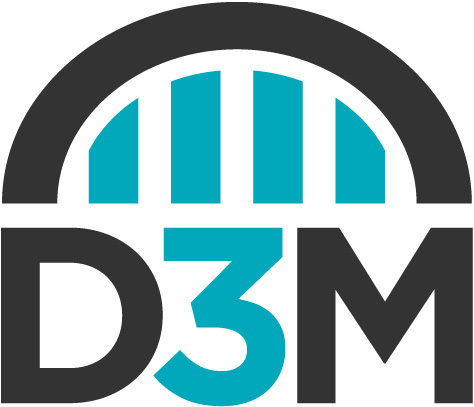The introduced amendments to the banking secrecy law of 3/9/1956 are a step toward long-awaited reform. However, even though the latest amendments bring Lebanon closer to meeting the IMF’s requirement they lack complete retroactive force law and contain numerous loopholes which undermine the law by allowing the executive and the judiciary to effectively delay its implementation.
I. INTRODUCTION
Lebanon’s banking secrecy law, promulgated on September 3, 1956, has long fostered tax evasion and obstructed investigations into financial crimes. Amending the law is crucial – not only to allow Lebanon to oversee banking transactions and collect much needed tax revenue, but also to enable a crackdown on financial crimes like illicit enrichment, terrorism financing, and money laundering.
While a step in the right direction, Lebanon’s latest draft of the law remains riddled with loopholes and avenues for abuse of power. It was passed by parliament and submitted to President Aoun on 26 July 2022; he returned it to parliament on 31 August 2022, on the basis that it required further strengthening. The IMF’s assessment of the introduced amendments also emphasised the need for modifications to bring the law in line with international standards.[1] After Parliament’s second round of edits, which integrated the amendments listed in the IMF’s assessment, the new banking secrecy law was signed by President Aoun on October 29, 2022, and was published in the Official Gazette on November 3, 2022. Nonetheless, the law is still rife with loopholes preventing the relevant authorities from effectively investigating financial crimes.
If implemented according to international standards, a new banking secrecy regime in the country could ensure tax dodgers and money launderers – not to mention those who transferred their money abroad since October 2019 – are no longer sheltered by the banking system. Such a change would contribute to developing a new social contract for Lebanon – in which the state collects more taxes and banks play by a uniform set of rules, rather than catering to those who pay them best.
This position paper details the current amendments to the 1956 banking secrecy law and suggests further amendments that would make such a social contract possible. In doing so, it provides a coherent position on the modifications necessary to regulate banking secrecy through fair and impartial mechanisms while meeting IMF requirements.
II. INTRODUCED AMENDMENTS
The amendments introduced by the Lebanese Parliament and signed by the President on 29 October 2022 predominantly cover the use of numbered accounts and safes, as well as expanding the number of authorities able to lift banking secrecy. Nonetheless, these amendments fail to detail specific information-access procedures or prosecution mechanisms. New categories of individuals to which the provision of banking secrecy does not apply to were also introduced. However, the new draft law does not uniformly include the families of these individuals within the exempted categories, which allows public officials potential loopholes and prevents the efficient application of the law.
The below points analyse the most significant amendments, while Annex 3 provides a table comparing the 1956 law and the newly amended 2022 law (in Arabic).
1. Numbered accounts and safes are banned, allowing improved information sharing and tracking
Article 3 of the original 1956 banking secrecy law states that banks established in Lebanon in the form of joint-stock companies, as well as banks that are branches of foreign companies, can open anonymised deposit accounts and lease anonymised safes, whereby the identity of the holder is concealed and replaced with a number. As a result, the identity of the holder is known only to the director of the bank’s board, their deputy, the bank’s general manager, and the branch manager. The identity of the holder can be disclosed only with the holder’s written authorisation, or that of their heirs or legatees; in the eventuality that the holder is declared bankrupt; or if there is a lawsuit involving the bank and their clients.
The newly amended Article 3 forbids such anonymised accounts and safes. Existing numbered accounts and safes should be regularised, with the identity of the holder clearly attached, no later than six months after the new banking secrecy law enters into effect. Shifting to nominated accounts will make it easier to access information and identify account holders when tracking tax evasion, investigating financial crimes, and facilitating asset recovery.
2. Limited retroactivity of the new banking secrecy law
The amended law fails to mention whether new regulations around banking secrecy will be retroactively applicable. Given that parliamentary subcommittees agreed to the law’s retroactivity, this omission in the text of the amended law itself is most likely deliberate. Without explicit retroactivity, banks and special interest groups will be able to argue that the new regulations are applicable solely to transactions made after the amended law comes into force. Past tax evasion would remain hard to prosecute and tracking other historic infractions, such as money laundering and terrorism financing, would be impossible. In addition, several laws on which the banking secrecy law is not dependent limit the scope of when banking secrecy can be lifted, including:
- The statute of limitations which applies differently according to the nature of the crime committed (generally between 3 and 10 years)
- The legal requirement under the Code of Money and Credit for banks to keep records spanning a ten-year period.
Nonetheless, the newly amended law mentions that the National Anti-Corruption Commission (NACC) can lift banking secrecy in accordance with Article 13 of Law 189 of 2020 relating to the declaration of assets and other interests and the repression of illicit enrichment. Article 13 of Law 189 of 2020 mentions that the passage of time – or the defined timeframes within which legal action can be taken on a crime – does not apply on the prosecution of illicit enrichment. This provision enhances the retroactive applicability of the banking secrecy law and allows for a more thorough and effective asset recovery. The new law also mentions that banking secrecy can be lifted retroactively on the categories of individuals listed in Article 2 (See point 4 below for details covering the categories).
Therefore, the amended banking secrecy law stipulates a limited scope of retroactive access to banking information only limited to Article 2 categories and on the prosecution of illicit enrichment, but fails to guarantee a retroactive access beyond these two options.
3. Expansion of authorities allowed to lift banking secrecy, but within a compromised, limited scope
Article 2 of the 1956 law forbids any person with access to banking information to share details or data with any individual or administrative, military, or judicial authority unless the aforementioned conditions are met (written consent from the account owner or their inheritor; upon announcement of bankruptcy, if there is a legal case involving banks and their clients). According to the 1956 law, Lebanon’s Special Investigation Committee (SIC)—the financial intelligence unit central to Lebanon’s anti–money laundering and terrorist financing regime—is the only authority empowered to lift banking secrecy, although it has rarely done so. Indeed, the number of requests by competent authorities to lift banking secrecy approved by the SIC has been notably low (with 36% of requests granted between 2018 and 2020), while only 11 requests for tax evasion took place in 2020.[2]
Article 7 of the amended banking secrecy law expands the list of authorities allowed to request the removal of banking secrecy. Banks would need to provide information when a request is submitted by:
- Judicial authorities
- The SIC
- The National Anti-Corruption Commission in Lebanon (NACC)
- Tax authorities
- The Banque du Liban (BDL),
- Banking Control Commission of Lebanon (BCCL)
- The National Institute for Guarantee of Deposits (NIGD)
More information on the access to information by relevant authorities is detailed in Annex 2.
Widening access to banking information would expand tracking and investigative powers—a development that would be welcomed by the IMF.
However, the SIC and the NACC are both influenced by Lebanon’s financial and political elites and lack membership structures that are independent from those elites. To take one example, the BDL governor is also the chairman of the SIC. The current governor is being investigated for aggravated money laundering and embezzlement of public funds; this investigation, and related investigations, are hindered by the existing banking secrecy law. Therefore, the dual role of the governor presents a clear obstacle to impartiality and due diligence.[3] Additionally, some NACC members are appointed by ministers; others, by the BCCL, an entity that works closely with the BDL governor. The eligibility criteria also limit many qualified judges from serving on the commission.
Empowering tax authorities to access banking information will allow for better detection of tax evasion and fraud, and it will improve the state’s capacity to collect taxes. Increasing tax revenues is of particular importance now, given Lebanon’s ongoing economic crisis. Indeed, the Lebanese government loses an estimated 5 billion USD in uncollected taxes every year, amounting to a loss of around 49% of annual revenue due to domestic tax evasion.[4]
Judicial authorities will be able to access banking information to investigate a broad range of financial crimes, however, this access is primarily available in the context of an existing criminal lawsuit. The existence of a lawsuit depends on a preceding investigation by the public prosecutor. However, the new banking secrecy law does not grant access to banking information to the public prosecutor for purpose of investigation. Restricting the public prosecutor’s access to banking information decreases the available evidence needed to build solid grounds to file a lawsuit. Consequently, the decreased ability to file a lawsuit limits the judicial authorities’ crackdown on financial crimes. Furthermore, even with the existence of a lawsuit, judicial access to banking information is limited to the scope of financial crimes. Annex 2 details the list of the infractions meriting the removal of banking secrecy; such a circumscribed list could potentially limit judicial powers.
Although Article 7 details the list of authorities able to lift banking secrecy, it blatantly fails to describe the mechanism by which this information access will occur. Clear procedures outlined in the law itself could pave the way for faster, systematised, and more reliable access to information.
Three so-called administrative authorities; the BDL, BCCL, and the NIGD are also now empowered to lift banking secrecy by the newly amended law, and information exchange between the three of them is allowed. The bodies are called ‘administrative authorities’ because they are only granted general access to banking information i.e., enabling these bodies access to information unrelated to specific individuals or accounts—in the course of, for instance, general tax audits or periodic general financial reporting. Therefore, the new law allows for administrative investigations outside of criminal investigations, albeit in a general manner. Allowing the BDL, BCCL and NIGD to lift banking secrecy in this fashion can serve holistic reporting and auditing purposes, such as guaranteeing tax compliance within a bank. However, limiting the scope of access to banking information of these three entities solely to general information limits their overall investigative powers.
Furthermore, new amendments allow banks to appeal the three administrative bodies’ requests to lift banking secrecy through the Judge of Urgent Matters, initiating a potentially lengthy process. The appeal process, as per the new amendments, must be conducted in accordance with the “Orders on Petition” listed in the Law on Procedures of the civil law. Surprisingly, the Orders on Petition listed in the civil law specify that the existence of an objection or appeal does not suspend the investigation and the access to information. However, the new banking secrecy law contradicts this statement. Indeed, the amendments suspend enforcement and thus investigations and access to banking information in light of an objection or appeal until the Judge deliberates a verdict. Such contradiction leads to the misinterpretation of the law. Such contradiction also adds unnecessary ambiguity and complexity to the application of the law, and delays the progress of investigations while opening the door to political interference in the judicial process.
Finally, the process of how the three administrative bodies’ mandate to access information is defined by ministerial implementation decrees, first by the finance minister and then by the council of ministers. This extra step opens an obvious door to political interference from the executive in the process of accessing even general information by these so-called administrative bodies.
4. Exceptions to the provision of banking secrecy
The most recent amendments concerning Article 2 include categories of individuals to whom the provision of banking secrecy does not apply to, meaning their financial data can be accessed without written consent, and without the intervention of the pertinent authorities listed above. The provision of banking secrecy also will not apply to the exempted list for a period of 5 years following their resignation/retirement.
The categories include civil servants, executive boards of banks, parliamentary and municipal candidates, and anyone who held a related job/position since 23 September 1988 onwards (a more extensive list can be found below).
However, these categories provide vague definitions, and are not uniformly reported. For example, the amendments do not include the family members of board of directors and auditors of banks and media companies in the exemption categories, as opposed to the other categories. Such omissions limit the authorities’ investigative scope and can facilitate tax evasion and other financial crimes by using family members to conduct financial operations instead.
The exempted list of categories can be found below:
- Public employees: any person (whether appointed or elected, permanent or temporary, paid or unpaid) performing a public function or public service for subjects of Private and Public Law at the centralized or decentralized levels, who is obliged to submit a financial disclosure statement. In general, it is any person who works for the benefit of a public property, a public facility, a public utility, a public institution, a public interest, or public money, in addition to their families, extended families and guardians
- Heads of associations and administrative bodies engaging in political activity, civil society organizations, as well as their spouses and minor children, trustees and/or guardians and/or economic right holders
- Candidates for parliamentary, municipal, and optional elections, through serial acquisitions or other sequential indirect means of control
- Current and former presidents and members of the boards of directors of banks, their executive directors, and auditors
- Presidents and members of the boards of directors of companies that manage or own the visual, audio, written and electronic media.
5. The judiciary is now allowed to freeze accounts and lift banking secrecy
According to the 1956 banking secrecy law, deposited funds and assets could only be seized if written authorisation had been issued by their holders. The newly amended Article 4 of the law allows judicial authorities, as listed in Article 7, and the SIC to freeze and seize accounts in in order to conduct an investigation.
The SIC, as per the amended Article 4, is empowered to freeze accounts in accordance with Law 44 on fighting money laundering and terrorist financing (2015).[5] Article 6 of Law 44 states that the SIC can implement a precautionary, temporary freeze of suspicious accounts to conduct investigations. After conducting the necessary audit, the SIC can decide to either keep tracking or permanently freeze the suspicious account. In case of transactions suspected to be related to money laundering or terrorism financing, the SIC can lift banking secrecy to allow the competent judicial authorities and the Higher Banking Commission (HBC) to investigate.
As a result, the amended law contains an internal contradiction. On the one hand, it stipulates that the judiciary is able to lift banking secrecy; on the other, it invokes Law 44, which makes judicial authorities dependent on the SIC to lift banking secrecy. Such contradiction creates a deliberate confusion in the enforcement of the law.
Without a clear accessing process outlined in the newly amended banking secrecy law, legislative contradictions such as this could be appealed and block authorities’ ability to directly access information. Ensuring the judiciary is empowered to lift banking secrecy independently from the SIC will enhance its autonomy and streamline this procedure.
6. Disproportionate and imprecise penalties
Article 8 of the 1956 banking secrecy law states that any breach of the law results in a prison sentence of three months to one year. The new amendments alter the penalties for disclosing information and breaching banking secrecy, while adding new penalties for refusing to provide requested information.
The changes are as follows:
Disclosing information
According to the amended law, improperly disclosing information protected by banking secrecy is punishable by a prison sentence of one to 3 months and a fine of 150 to 300 times the monthly minimum wage. (The current monthly minimum wage is 2 million LBP.)[6] The fine would therefore range from 300 million to 600 million LBP—or roughly 8,000 to 16,000 USD at the current exchange rate.) The fine is doubled in case of reoffending. In its assessment covering previous amendments to the banking secrecy law, the IMF opined that imprisonment is a disproportionately harsh sentence for breaching financial secrecy, thus possibly obstructing the disclosure of criminal or suspicious activity.
The same punishment and fines are applicable in instances whereby the pertinent authorities disclose banking information (legally obtained). This limits the authorities’ ability to share data amongst authorized entities.
Refraining from providing information
Declining to provide banking information requested by the authorised authorities is sanctioned in the amended law. This is a significant step forward from the 1956 law, which only penalised the improper disclosure of information. It should be noted that the IMF assessment did not provide any input on this section of the law.
As per the amended law, declining to provide the information requested by the pertinent authorities is subject to punishment according to Clause 1 in Article 3 of Law 44. This article stipulates prison terms of three to seven years, in addition to a fine. This is outlined more fully in the box below.




